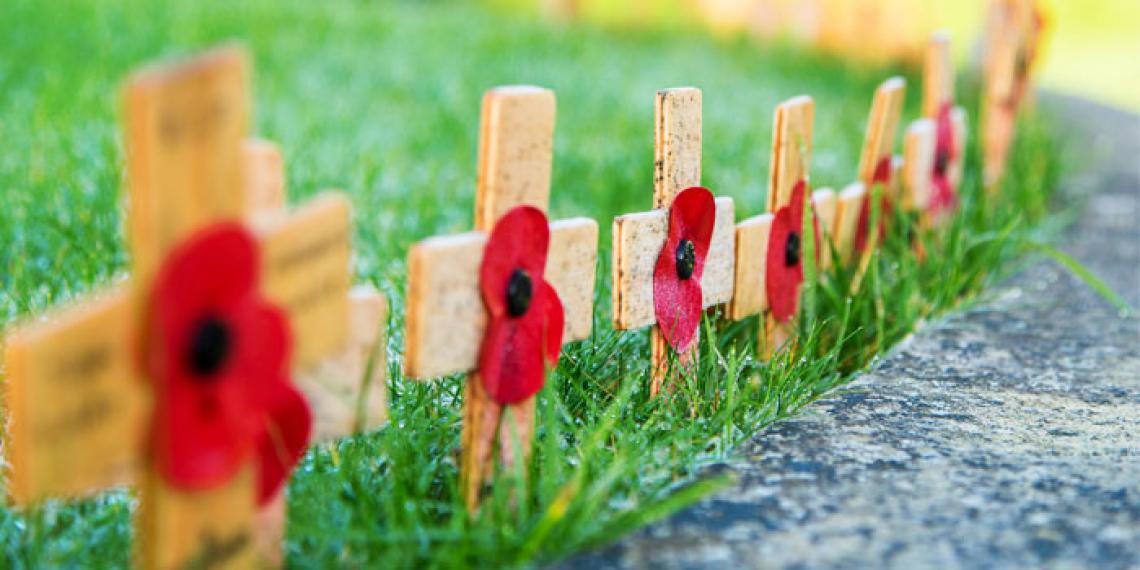You are here
On ANZAC, Gallipoli and being Christian

For years, I had wanted to visit Gallipoli, and here I was with a group of fellow Kiwis with the blue Aegean Sea laid out before me, the sun beating down relentlessly and tears that didn’t want to stop pouring down my cheeks.
If Kiwis have a pilgrimage, Gallipoli has to be it. The senselessness of it all—thousands of young lives lost and many thousands more wounded—is overwhelming. As a child visiting the Auckland War Memorial Museum, seeing the massive marble wall naming those many hundreds of Aucklanders that had lost their lives in the world wars was almost incomprehensible.
It was this same sense of the incomprehensible that was impacting me at Gallipoli. Poignantly, a Maori member of our group led a karakia, and the deep well of lament and loss rose into the still afternoon air. So many … gone. The heart of a young nation decimated. Never again was New Zealand prepared to lose so many. Only 25 years later, Prime Minister Peter Fraser told General Bernard Freyberg, commander of the First Division, that he had in his hands the responsibility for a whole generation of New Zealanders—with the injunction never to allow a repeat of another Gallipoli.
It was not just the sense of the incomprehensible that impacted me that day. Gallipoli, I knew, held other compelling messages.
One of these is the message of forgiveness. Some years earlier, I had stood at the memorial on Wellington’s south coast and contemplated the meaning of Kemal Ataturk’s words to the mothers of those soldiers that had perished:
The heroes who shed their blood and lost their lives, you are now lying in the soil of a friendly country. Therefore rest in peace. There is no difference between the Johnnies and the Mehmets to us where they lie side by side in this country of ours. You, the mothers who sent their sons from far away countries wipe away your tears, your sons are now lying in our bosoms and are in peace. After having lost their lives on this land they become our sons as well.
Ataturk had been a Turkish Divisional Commander opposing the ANZAC and other forces at Gallipoli. With the fall of the Ottoman Empire in the early 1920s, he became the founder of modern secular Turkey. It might be argued that the invasion of Turkey and Gallipoli by British, ANZAC and other forces could be interpreted as a repeat of the Christian crusades. Instead, we find these words of forgiveness and comfort, which perhaps helps explain the special connection between New Zealanders and Turks.
A second message from Gallipoli is strongly linked to New Zealand’s identity as a nation. Several historical markers point to our national identity—and Gallipoli has become one of these. Other nations are not slow to honour and commemorate their victories and conquests. New Zealand is different in terms of its national day of commemoration. Gallipoli was no victorious rout of a foreign enemy; it was an abject failure conceived in the minds of political and military leaders in London and executed with clumsiness and little attempt at surprise or secrecy.
A key element to our understanding of ourselves as a nation is therefore grounded in a very significant military failure and defeat. Its message is comprehensive. It contributes to the commitment of New Zealanders to peace, and to our pride in our armed forces on those occasions when they are involved in peace-keeping missions. It also speaks powerfully to a greater independence in foreign policy, and our reluctance to be readily involved in conflicts. In more recent years, it has led to a stronger emphasis on world peace at ANZAC parades, while still honouring the sacrifice and losses of our forebears of another age and with another worldview.
But there is a third and final message from Gallipoli that speaks to me as a Christian and which spoke to me powerfully on that beautiful Gallipoli day. I have long appreciated the parallel between New Zealand’s identity forged in a defeat and Christ’s crucifixion, something at the heart of Christian identity. There is no triumphalism here. Just a broken man hammered as a convicted criminal on a monstrous structure of Roman torture and death. No victory heralded. Little or nothing to celebrate. Only the pain, suffering and brokenness of innocence and goodness betrayed.
Subsequent to this, the resurrection then adds elements of hope and fulfilment of Christ’s crucifixion, confirming that my identity as a Christian is grounded in God who chooses to become human and to suffer with humanity. My identity is linked with God who chooses to engage with the dark and shadow side to human life—and to transform it. The very worst elements of human abuse are all evident at the crucifixion event. But God enters and overcomes it. Christians choose to follow a God like that.
By Major David Noakes
Major David Noakes is Principal of Booth College of Mission